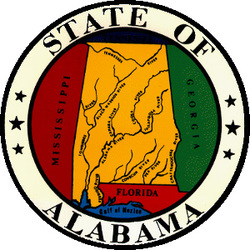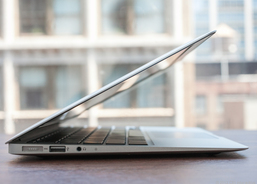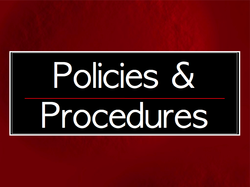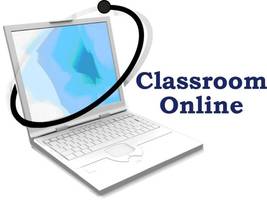MMS SIXTH GRADE SOCIAL STUDIES
What Will I Learn in 6th Grade Social Studies?

In Sixth Grade United States Studies you will learn about the Industrial Revolution to the Present. The following is a summary from the Alabama Course of Study for Sixth Grade:
Sixth-grade content standards focus on the history of the United States from the Industrial Revolution to the present. Historical events studied by sixth graders include the rise of the United States as an industrial nation, World War I, the Great Depression, World War II, and the Cold War Era. Furthermore, the economic, political, social, and technological issues and developments from post-World War II to the present are explored. Emphasis is placed on economic, geographic, historic, and civic and governmental changes that have influenced every aspect of life during these events, including communication and technological advances, reorganization of national boundaries, and the movement of the United States into the role of world leader.
Sixth-grade students are interested in acquiring a deeper understanding of cultures and political opinions that differ from their own. Students at this age benefit from a positive learning environment that challenges and encourages their efforts and progress. As they begin a transitional stage characterized by physical, cognitive, and social changes, they begin to analyze and evaluate relationships between ideas and practices. Sixth-grade instruction should provide constant opportunities for students to explore prior knowledge and opinions. Teachers should maximize and expand students’ knowledge through the use of integral tools, including cooperative learning, large- and small-group discussions, hands-on activities, current technology, and the use of primary sources.
Sixth-grade content standards focus on the history of the United States from the Industrial Revolution to the present. Historical events studied by sixth graders include the rise of the United States as an industrial nation, World War I, the Great Depression, World War II, and the Cold War Era. Furthermore, the economic, political, social, and technological issues and developments from post-World War II to the present are explored. Emphasis is placed on economic, geographic, historic, and civic and governmental changes that have influenced every aspect of life during these events, including communication and technological advances, reorganization of national boundaries, and the movement of the United States into the role of world leader.
Sixth-grade students are interested in acquiring a deeper understanding of cultures and political opinions that differ from their own. Students at this age benefit from a positive learning environment that challenges and encourages their efforts and progress. As they begin a transitional stage characterized by physical, cognitive, and social changes, they begin to analyze and evaluate relationships between ideas and practices. Sixth-grade instruction should provide constant opportunities for students to explore prior knowledge and opinions. Teachers should maximize and expand students’ knowledge through the use of integral tools, including cooperative learning, large- and small-group discussions, hands-on activities, current technology, and the use of primary sources.
How Do You Navigate the Website?

Use the tabs across the top of the page to go to the main pages of this site. Each Unit Module has a listing of the Learning Modules in the Unit. As we get to these, the lessons in the list will become active links. You may also search the site using the search box in the top right hand corner of every page.
How Can I Access the Classroom Website?

You can of course, simply go to www.aprilsmith.org or you can go through the MMS faculty page on the MMS website. The site is also mobile device compatible. You can even download the classroom app by clicking on the picture to the left or the link below. You can download it to your phone or tablet with Google Play or by scanning the QR code.
How Does the Online Classroom Work?

The online classroom is a virtual classroom. You can see daily lessons whenever you like. If you are absent, you can participate in class assignments as we are doing them in class. Here's how it works:
- Each day students come into class and are told to go to the Learning Modules Page.
- They will be directed to click on a module. When they click on the link, students are taken to the lesson or assessment for that day.
- All learning modules are done online; however, students will be required to keep a Lesson Chronicles Folder. Lesson Chronicles are the way student document that they are meeting learning the lesson learning goals. It also gives students a means by which to study for tests when they do not have internet access at home, as well as a means of showing their parents what they learned in the lesson.
How Is the Online Classroom Organized?

Unit Modules
Modules consist of a Welcome Unit and 9 content units. Each Unit Module has a Main Page that is listed as a subpage under the Learning Modules Tab and as links on the actual Unit Main Pages.
Lesson Modules
Lesson Modules are the components of the Units. Each Lesson goes over a major topic involved in the Unit. Most Lessons will take about 2 - 3 days, but some will be more. Every Lesson will be taught using different activities but the same structure. Some of the activities that students do in the lessons include the following:
Modules consist of a Welcome Unit and 9 content units. Each Unit Module has a Main Page that is listed as a subpage under the Learning Modules Tab and as links on the actual Unit Main Pages.
Lesson Modules
Lesson Modules are the components of the Units. Each Lesson goes over a major topic involved in the Unit. Most Lessons will take about 2 - 3 days, but some will be more. Every Lesson will be taught using different activities but the same structure. Some of the activities that students do in the lessons include the following:
- Digital text and practice with reading skills
- Hands on experience with various technology
- Historical simulations
- Online Games including individual games; board games, arcade games, and game shows
- Online polls and discussion forums
- Online interactive activities
- Online creation tools
- Computer software
- Online learning notebooks
- Live Action Role Play
- History Through Music
- Concept Mapping
- Project Learning
- Photographic Analysis
- Webquests
- Lesson chronicling
Most lessons will be structured in the following way:
Focus Activity
Lessons begin with a focus activity and are designed to focus students' attention on the topic of the lesson. Every Focus Activity will be the Lesson Mission. The Lesson Mission will always require students to answer the most essential question of the lesson. To do this, students go through 4 Challenges and a Prove It Activity.
Lessons begin with a focus activity and are designed to focus students' attention on the topic of the lesson. Every Focus Activity will be the Lesson Mission. The Lesson Mission will always require students to answer the most essential question of the lesson. To do this, students go through 4 Challenges and a Prove It Activity.
Challenge 1
Challenge 1 is a teaching activity. In Challenge 1, the teacher presents new information or teaches a new skill to the class.
Challenge 1 is a teaching activity. In Challenge 1, the teacher presents new information or teaches a new skill to the class.
Challenge 2
Challenge 2 is a whole group learning activity. In Challenge 2, the teacher gives the whole class a chance to explore the new information.
Challenge 2 is a whole group learning activity. In Challenge 2, the teacher gives the whole class a chance to explore the new information.
Challenge 3
Challenge 3 is a small group activity where students work with small groups to apply what they have learned, expand on what they have learned, or analyze what they have learned.
Challenge 3 is a small group activity where students work with small groups to apply what they have learned, expand on what they have learned, or analyze what they have learned.
Challenge 4
Challenge 4 is an individual practice activity where students are given a chance to individual practice what they have learned or reflect upon what they have learned.
Challenge 4 is an individual practice activity where students are given a chance to individual practice what they have learned or reflect upon what they have learned.
Mission Check Activity
The Mission Check Activity is an individual activity. Individual activities allow the student to prove that they have mastered the content of the lesson. Mission Check Activities are taken for a grade.
The Mission Check Activity is an individual activity. Individual activities allow the student to prove that they have mastered the content of the lesson. Mission Check Activities are taken for a grade.
What Kind of Work Can I Expect?

Here's what you can expect as far as work:
Lesson Chronicles: Everyday, you are expected to do Lesson Chronicles. Lesson Chronicles are the way you show that you are making the lesson targets. Lesson Targets are the main ideas of the lesson. They help students build the information and skills they need to meet the Lesson Mission. Each target completed and corrected in your Lesson Chronicles is worth 5 points. So Lesson Chronicles are determined by the number of targets in each lesson. On average, each Lesson Chronicle will be worth around 25 points.
Mission Check Activities: Mission Check Activities are at the end of every lesson. The Mission Check Activity shows the teacher that the student understands the content or can perform the skill of the lesson. The Mission Check Activity could be a multiple choice activity, a project, a simulation, or an essay. Mission Check Activities are worth 50 points.
Unit Assessments: Unit Assessments are designed to test how well you understand how the lessons of the unit all come together. Unit Assessments test to make sure students understood the big picture. The Unit Assessment could be a test, a project, a simulation, or an essay. Unit Assessments are worth 100 points.
Homework: Homework for the class is very simple. First, you are to help your parents with at least one major chore every night. Second, you must show your family your lesson chronicles every night and tell them about what you learned. This will help you remember the content, because you are sharing it with someone else, but it will also give you quality family time. You also will study for tests. If you have been doing your homework every night, you probably won't have to study!
Lesson Chronicles: Everyday, you are expected to do Lesson Chronicles. Lesson Chronicles are the way you show that you are making the lesson targets. Lesson Targets are the main ideas of the lesson. They help students build the information and skills they need to meet the Lesson Mission. Each target completed and corrected in your Lesson Chronicles is worth 5 points. So Lesson Chronicles are determined by the number of targets in each lesson. On average, each Lesson Chronicle will be worth around 25 points.
Mission Check Activities: Mission Check Activities are at the end of every lesson. The Mission Check Activity shows the teacher that the student understands the content or can perform the skill of the lesson. The Mission Check Activity could be a multiple choice activity, a project, a simulation, or an essay. Mission Check Activities are worth 50 points.
Unit Assessments: Unit Assessments are designed to test how well you understand how the lessons of the unit all come together. Unit Assessments test to make sure students understood the big picture. The Unit Assessment could be a test, a project, a simulation, or an essay. Unit Assessments are worth 100 points.
Homework: Homework for the class is very simple. First, you are to help your parents with at least one major chore every night. Second, you must show your family your lesson chronicles every night and tell them about what you learned. This will help you remember the content, because you are sharing it with someone else, but it will also give you quality family time. You also will study for tests. If you have been doing your homework every night, you probably won't have to study!
What Are the Policies and Procedures of this Class?

Classroom Rules:
The class rules will be discussed in detail with all students on the first day of school and will be practiced throughout the year. In addition to all school rules, students must:
Discipline Policy:
The discipline policy will be discussed in detail with all students on the first day of school and will be enforced throughout the year. Students who choose not to follow the classroom rules will have to sign the conduct book and receive the following consequences:
Entering the classroom:
Please enter the classroom, put away your things, get out the materials you need for class, and log into your computer very quietly. There should be no talking, coming up to me for questions, or wandering around the room. Keep your hands, feet, and other objects to yourself. Do not run and/or shout inside the classroom!
Dismissal of Class:
Five minutes before class is over, you will be instructed to tidy up your floor and table. When this is done, you put you head down. This indicates you are ready to go. When all head are down, and I see that the room is tidy, I will line up one table at a time. You must line up quietly and quickly.
Talking:
Talking is a requirement for the class; however, you should not talk until told to do so. You will have many group discussions and team activities that will require your to collaborate with others. These discussions must be on topic. Discussions about personal or unrelated issues will result in good old fashion book work with zero talking. YUCK!
Leaving Your Seat:
You may not leave your seat without raising your hand to get permission first. Each table will have hand sanitizer, tissues, and a trashcan and every chair has storage - so there is really no need to move around the room.
Guests in the Room:
When a guest enters the room whether they are 7 or 97 - everyone gets quiet. They should be absolutely no talking when they are in the room. We want to help the guest conduct whatever business they need as quickly as possible so that we do not waste their time and they do not waste ours. When I am absent and you have a guest teacher, you should be on your best behavior and show him or her the upmost respect. If I get a negative report from a guest teacher, Ms. Glover and your parent will be notified and you will be required to personally apologize to him or her.
Cell Phones/Electronics:
Cell Phones, iPods, DSs, and other electronic games are not to be brought to the classroom. Please turn these off and keep these in your locker. If found, these items will be confiscated and student’s parent/guardian must collect items from the office, not from my classroom. Electronic devices you may bring to class are nooks, kindles, ipads, and tablets. If you bring these, they are for reading downloaded books or for teacher approved activities. Violation of this will result in the device being taken up and a parent will have to come and get it from the office.
Gum/Candy:
You may not chew gum at all at MMS! You may not have candy unless a teacher gives it to you.
Snacks:
You may bring a breakfast snack to homeroom. Do not bring sugary snacks or candy. You are not allowed to bring sodas to school at all. If you do, these will be thrown away. You may take bottled water from class to class; however, when we are on the computer, the water bottle must be closed and in the bag on the back of your chair.
Restroom:
Students are expected to try and take care of such needs before class, during assigned class restroom breaks, and after school. I do understand that sometimes there are emergencies. You have two bathroom passes a week. Once those are used, you may not go anymore so use them wisely. To go to the restroom, you must raise your hand and ask permission. If permission is granted, then you will need to sign out and place a sticker on the GPS on the 6th grade restrooms. When you return, you will throw away the sticker and sign in the time you returned. You will have 5 minutes to take care of business. You may not ask permission in the first ten minutes of class or when I am giving instructions.
Grooming:
Brushing your hair and putting on make-up, is not allowed in the classroom at any time. I know it is awesome to have your hair braided and played with by your BFF, but this is also not allowed. You look nice enough and need to focus on learning not grooming! If this rule is broken, items will be confiscated and student’s parent/guardian will collect items at the end of the year from my classroom.
Office Announcements:
When an office announcement is heard, please freeze and listen silently.
Emergency Procedures:
In fire drills, tornado drills, or other emergency drill occurs, the rules are as follows:
1. Immediately be quiet and listen for instructions
2. Form a single-file line
3. Follow my directions
4. Move quickly and do not goof around
My Desk and Teacher Area:
Students are not allowed behind my desk, for any reason, unless personally invited. Do not come to my desk to talk or ask questions. Remember, you are to raise your hand if you need something. Most of the time, I won't even be at my desk during class time.
Computer Usage:
Emergencies/Nurse:
If you are having what I call an "emergency" - you are about to vomit, you have diarrhea, or you are severely bleeding - you do not need to ask permission to leave. Tell you neighbor why you are leaving and run to the restroom. We will have someone get the nurse for you. If you feel sick such as a fever, flulike symptoms, headaches, earaches, injuries that are not bleeding, etc... raise your hand. I will give you a nurse's pass to go to the nurse's office. The nurse does not see non-emergencies between the hours of 11:00 and 1:00. At this time, she has to dispense regularly taken medications.
Absences/Missed Work:
The benefit of online modules is that you can do these lessons anytime and anyplace that has internet service. If you are absent from school and are feeling well enough to use a computer, you can go to the weekly agenda on the planner page and see what we are working on and can do the lesson modules at home. You can do the work on the day that we do it in class or on a night at home after you have returned to school.
Even with this benefit, you have until the week before progress reports/report cards go out to complete any non - assessment missed work. Keep in mind that there will be several topics covered in each half quarter. The activities in class help you to learn the material for topic tests and help prepare you for unit quests. Though you are given extra time, doing them a.s.a.p. will help you do better on these assessments. Also keep in mind that your Lesson Chronicles are graded for completion and corrections. So if you do not do the work it will reflect negatively in your grade.
Benchmark Assessments and Unit Assessments are due two days after you return from an absence. You may make these up during P.E., working lunch, or after school. If you choose after school, you need to first approve the date you would like to stay after school with me and then have your parents write a note giving you permission and detailing how you will get home.
If you are absent the day before an assessment, you WILL BE EXPECTED to take the assessment the next day you return. All assessments are announced in advance, and you should be reviewing the material every night for homework. The day before each assessment is a review so you won't receive any new material on the day before an assessment.
The class rules will be discussed in detail with all students on the first day of school and will be practiced throughout the year. In addition to all school rules, students must:
- Respect each other and each other’s property.
- Be prepared, on time, with all materials ready.
- Behave in a non-disruptive manner - a manner that does not interfere with anyone's ability to learn or my ability to teach.
- Remain on task at all times.
- Raise your hand to be acknowledged during instruction.
- Participate in activities with 100% effort.
Discipline Policy:
The discipline policy will be discussed in detail with all students on the first day of school and will be enforced throughout the year. Students who choose not to follow the classroom rules will have to sign the conduct book and receive the following consequences:
- First Offense: Warning
- Second Offense: No Snack
- Third Offense: Silent Lunch
- Fourth Offense: Three Days of Silent Lunch and Teacher/Student conference - Create a Behavior Plan and Sign Behavior Contract
- Fifth Offense: Three Days of Silent Lunch/P.E. Detention/Parent Phone Call
- Sixth Offense: Three Days of Silent Lunch/P.E. Detention/Parent Conference
- Seventh Offense: Referral to Mrs. Glover
- Eighth Offense: In School Suspension
Entering the classroom:
Please enter the classroom, put away your things, get out the materials you need for class, and log into your computer very quietly. There should be no talking, coming up to me for questions, or wandering around the room. Keep your hands, feet, and other objects to yourself. Do not run and/or shout inside the classroom!
Dismissal of Class:
Five minutes before class is over, you will be instructed to tidy up your floor and table. When this is done, you put you head down. This indicates you are ready to go. When all head are down, and I see that the room is tidy, I will line up one table at a time. You must line up quietly and quickly.
Talking:
Talking is a requirement for the class; however, you should not talk until told to do so. You will have many group discussions and team activities that will require your to collaborate with others. These discussions must be on topic. Discussions about personal or unrelated issues will result in good old fashion book work with zero talking. YUCK!
Leaving Your Seat:
You may not leave your seat without raising your hand to get permission first. Each table will have hand sanitizer, tissues, and a trashcan and every chair has storage - so there is really no need to move around the room.
Guests in the Room:
When a guest enters the room whether they are 7 or 97 - everyone gets quiet. They should be absolutely no talking when they are in the room. We want to help the guest conduct whatever business they need as quickly as possible so that we do not waste their time and they do not waste ours. When I am absent and you have a guest teacher, you should be on your best behavior and show him or her the upmost respect. If I get a negative report from a guest teacher, Ms. Glover and your parent will be notified and you will be required to personally apologize to him or her.
Cell Phones/Electronics:
Cell Phones, iPods, DSs, and other electronic games are not to be brought to the classroom. Please turn these off and keep these in your locker. If found, these items will be confiscated and student’s parent/guardian must collect items from the office, not from my classroom. Electronic devices you may bring to class are nooks, kindles, ipads, and tablets. If you bring these, they are for reading downloaded books or for teacher approved activities. Violation of this will result in the device being taken up and a parent will have to come and get it from the office.
Gum/Candy:
You may not chew gum at all at MMS! You may not have candy unless a teacher gives it to you.
Snacks:
You may bring a breakfast snack to homeroom. Do not bring sugary snacks or candy. You are not allowed to bring sodas to school at all. If you do, these will be thrown away. You may take bottled water from class to class; however, when we are on the computer, the water bottle must be closed and in the bag on the back of your chair.
Restroom:
Students are expected to try and take care of such needs before class, during assigned class restroom breaks, and after school. I do understand that sometimes there are emergencies. You have two bathroom passes a week. Once those are used, you may not go anymore so use them wisely. To go to the restroom, you must raise your hand and ask permission. If permission is granted, then you will need to sign out and place a sticker on the GPS on the 6th grade restrooms. When you return, you will throw away the sticker and sign in the time you returned. You will have 5 minutes to take care of business. You may not ask permission in the first ten minutes of class or when I am giving instructions.
Grooming:
Brushing your hair and putting on make-up, is not allowed in the classroom at any time. I know it is awesome to have your hair braided and played with by your BFF, but this is also not allowed. You look nice enough and need to focus on learning not grooming! If this rule is broken, items will be confiscated and student’s parent/guardian will collect items at the end of the year from my classroom.
Office Announcements:
When an office announcement is heard, please freeze and listen silently.
Emergency Procedures:
In fire drills, tornado drills, or other emergency drill occurs, the rules are as follows:
1. Immediately be quiet and listen for instructions
2. Form a single-file line
3. Follow my directions
4. Move quickly and do not goof around
My Desk and Teacher Area:
Students are not allowed behind my desk, for any reason, unless personally invited. Do not come to my desk to talk or ask questions. Remember, you are to raise your hand if you need something. Most of the time, I won't even be at my desk during class time.
Computer Usage:
- Follow any instructions that I give you.
- Never bring food or liquids near any computers.
- You will only use the computer to do work directly related to the assignment. You may not check personal email, play games, or be on any website other than the class site or sites I have told you to go to.
- You will never negatively impact the software on the computer. Examples of negatively impacting the software include, but are not limited to: changing the settings, deleting other students’ work, applications, or shortcuts, downloading applications from the internet, introducing viruses, etc.
- You will never negatively impact the hardware of the computer. Examples of negatively impacting the hardware include, but are not limited to: damaging or removing keys, inserting unauthorized items into the drives, writing on the computer, etc.
- If you are set and ready to go and are waiting on others, you may open another tab to check your grades or work on any assignments you are behind on.
- If you break a rule, your computer privileges will be revoked for the next assignment and possibly the rest of the year depending on the nature and the frequency of violations. You will have to complete the assignment (and future assignments) without the benefit of computer technology.
Emergencies/Nurse:
If you are having what I call an "emergency" - you are about to vomit, you have diarrhea, or you are severely bleeding - you do not need to ask permission to leave. Tell you neighbor why you are leaving and run to the restroom. We will have someone get the nurse for you. If you feel sick such as a fever, flulike symptoms, headaches, earaches, injuries that are not bleeding, etc... raise your hand. I will give you a nurse's pass to go to the nurse's office. The nurse does not see non-emergencies between the hours of 11:00 and 1:00. At this time, she has to dispense regularly taken medications.
Absences/Missed Work:
The benefit of online modules is that you can do these lessons anytime and anyplace that has internet service. If you are absent from school and are feeling well enough to use a computer, you can go to the weekly agenda on the planner page and see what we are working on and can do the lesson modules at home. You can do the work on the day that we do it in class or on a night at home after you have returned to school.
Even with this benefit, you have until the week before progress reports/report cards go out to complete any non - assessment missed work. Keep in mind that there will be several topics covered in each half quarter. The activities in class help you to learn the material for topic tests and help prepare you for unit quests. Though you are given extra time, doing them a.s.a.p. will help you do better on these assessments. Also keep in mind that your Lesson Chronicles are graded for completion and corrections. So if you do not do the work it will reflect negatively in your grade.
Benchmark Assessments and Unit Assessments are due two days after you return from an absence. You may make these up during P.E., working lunch, or after school. If you choose after school, you need to first approve the date you would like to stay after school with me and then have your parents write a note giving you permission and detailing how you will get home.
If you are absent the day before an assessment, you WILL BE EXPECTED to take the assessment the next day you return. All assessments are announced in advance, and you should be reviewing the material every night for homework. The day before each assessment is a review so you won't receive any new material on the day before an assessment.
The Daily Routine

First 5 minutes of class:
5 - 45 minutes into class:
Last 10 minutes of class:
- Walk in quietly... without talking.
- Look at the right hand side of the board for the materials you need to have out. Put all other materials in your crate.
- As I call the roll, open your computers and log in using your user id and password.
- Go to the class website.
- Look at the right hand side of the board for the module you need to go to and go to that module.
- Go to the class website
5 - 45 minutes into class:
- The lesson or assessment of the day
Last 10 minutes of class:
- Wrap up
- Everyone gets quiet.
- Close down computers.
- Clean up - pick any trash up off the floor and tables.
- Snake out of the room QUIETLY following in number order to your next class without talking.
SO WHY SO MUCH TECHNOLOGY MRS. SMITH?
Technology is a part of social studies because technology affects us as a society. There are other reasons I feel strongly about using technology in the classroom. We are going to watch the following video as a class. You can watch it at home if you like as well. As we watch it, see if you can determine why I feel that teaching you about technology is SO IMPORTANT!
Practice Makes Perfect
Now - get started exploring the site. I will direct you to click on pages and explain what each type of page contains as well as how to locate unit modules and readings quickly.
